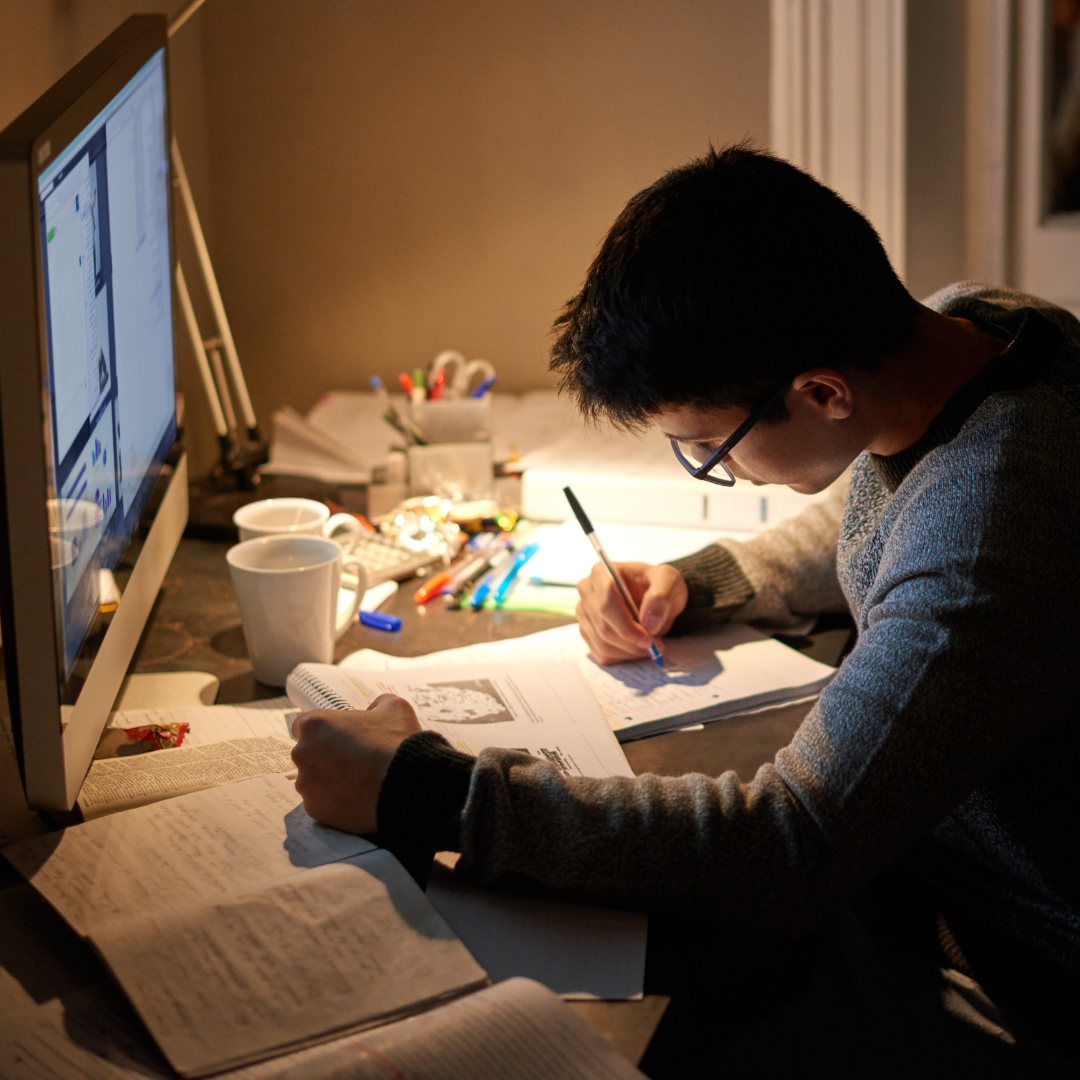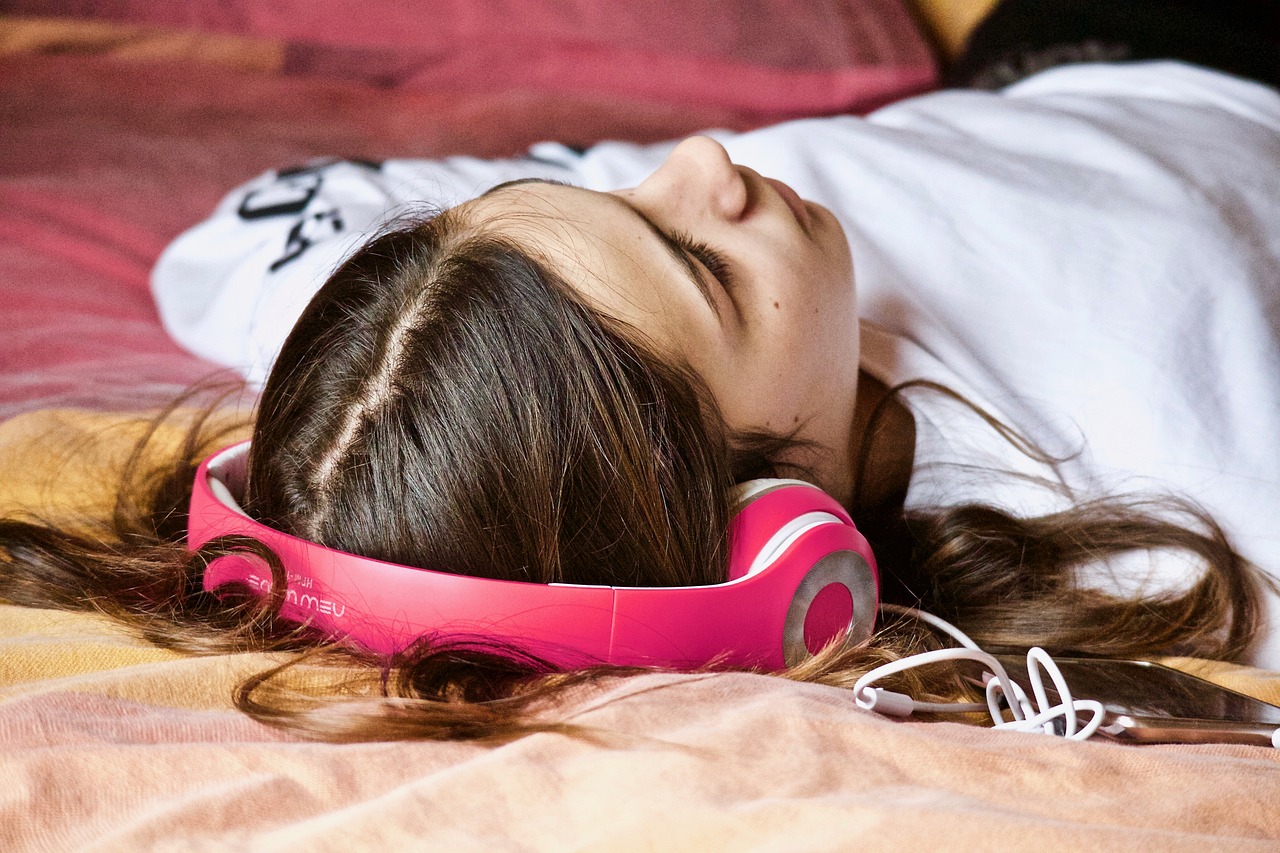Creating the Perfect Study Session

Have you ever found your daughter doing her assigned reading in her closet?
What about your son; have you found him studying while tossing a baseball with his hands?
Does your teen insist on listening to music while studying?
Keep reading to learn why.
Let’s start by breaking down what can make a study session great and finding out why your teens do some of the things they do while studying.
I teach 12 Study Skills and one of them is creating a perfect study session. That skill is linked to learning styles.
Look back at the first paragraph. That young woman studying in the closet may study in a different place for every class she takes.
When she needs to remember, she remembers where she was when she learned about it. Learning like this can be both visual and kinesthetic.
If the teen with a baseball needs to remember, he may flick his wrists like he has the baseball in his hands during a test. Kinesthetic learners often use movement to learn and remember.
Auditory learners learn best when they hear things. The cool thing is that it can be the learner’s own voice. If your teen reads his own notes aloud, he will likely remember them better if he’s an auditory learner.
Frequently, it’s the auditory learner who wants music while she studies. Music while she studies is a mixed bag. For some students, the music is white noise. It can help students focus, but know that there are drawbacks, too. During a test, there won’t be music playing. If your teen needs the music to remember, can she imagine the music in her head? Humming will distract others during a test and most likely won’t be allowed.

Music can also become a distraction to your teen while studying. Your teen may want to sing along if there are lyrics or play air guitar or imaginary drums. If your teen really must have music, scientists suggest classical music with no lyrics that is mellow to help stay focused. Reading comprehension has been shown to fall when study music has lyrics, is too loud, or is fast paced.
Think about the last time you learned something with music in the background. Do you remember the music or what you learned better?
Distractions can be a problem for any learner. Wherever your teen studies, eliminating distractions is a MUST. The distractions can be electronic in nature; TVs, cell phones, game consoles, etc. Physical clutter can also be distracting. In a recent interview I conducted, the speaker explained how clutter can even be depressing or stressful.
Not only does your teen’s study space need to be distraction-free, it needs to match his or her learning style. Think about your desk at work. Is it situated so you’re not distracted by people walking by? Do you sit in a place where you can minimize your loud neighbor? Or maybe have five different colored pens at the ready at all times…
Help your teen to find at least one place where studying is always ok and always easy.
I mentioned an auditory learning reading his notes aloud earlier. This study space needs to be where a person can talk to himself. I’m a visual learner so my study space always has a white board or two. I’m able to write things down, do calculations, or draw pictures or graphs to understand material more clearly. A kinesthetic learner may need a little more space or a stress ball or two. Just remember: if they need special means to remember material, how will they mimic that in an acceptable way in a classroom?
Another element that can affect a perfect study session is the time of day. Society regularly shows a younger student coming home from school and sitting down at the kitchen table to do homework. College students are portrayed as studying late into the night. There is truth to those images, but are they the best way for your teens to study? There are teens who need a break after school. There are teens who study best early in the morning rather than late at night. When I work with teens, we create an individual schedule based on personal preferences. Just a little bit of autonomy and setting up a schedule of his own can make a big difference to your teen’s willingness to study, let alone the effectiveness.
So let’s say you’ve got the groundwork laid. Your teen knows how they like to study. They have a place to study, and they’re ready to study. What’s next?
I’m a HUGE believer in goals, so every time your child sits down to do homework or study, there needs to be a clear objective. What does your teen want to accomplish during her study session?
Let’s say your teen has one hundred math problems to complete. When your teen realizes the quantity of work she has to do, she says, “No way!”
The answer may be to look over the questions quickly and pick 3 or 4 from each section. If your teen does those problems, she may not get all homework credit, but she will have practiced all of the sections of her homework. If she can do that, she can still find success in the class.
Studying can be content based like doing questions from each section of an assignment or time based. Maybe your teen needs to give 30 minutes of hard work to an assignment knowing that when that 30-minute timer goes off, he can move to something else.
There are a lot of moving pieces to a perfect study session. I’ve only mentioned some of them, but if you know your teen’s learning style, have a place where your teen can study, provide the tools that help him or her learn best, and know when your teen learns best, you’ve got a solid start on creating a perfect study session.
If you would like to improve your teen’s next study session, reach out to me at: jessyka@acecookietutoring.com or schedule a free consultation here. Discovering your teen’s learning style and finding ways to help her learn more effectively is only one of the things I do.